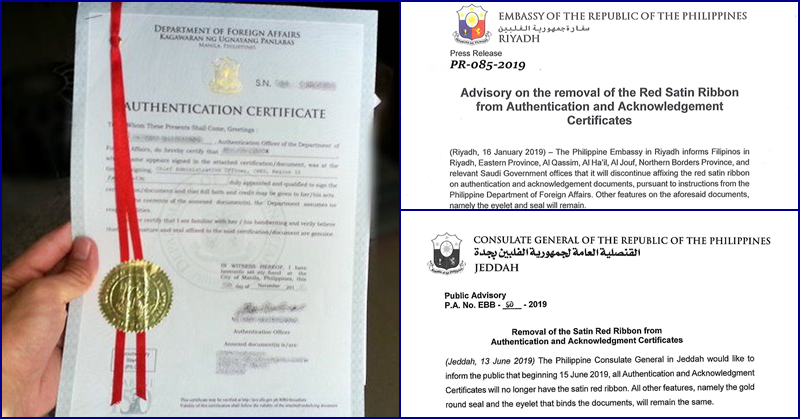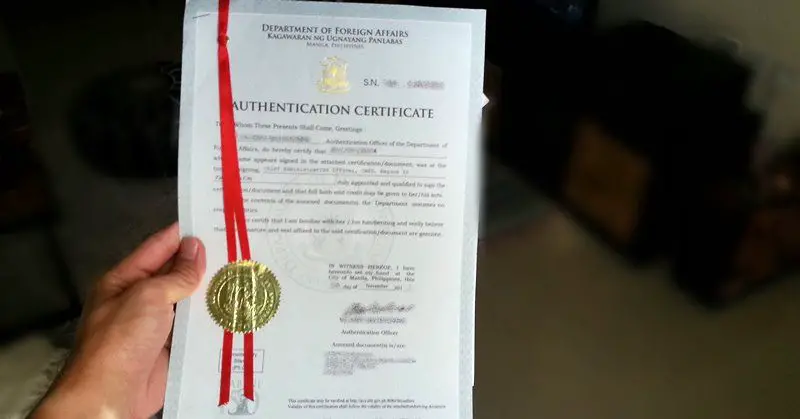The Philippine Embassy in Riyadh has recently announced that it shall stop affixing the “red satin ribbon” on the authentication and acknowledgement of documents, as instructed by the Department of Foreign Affairs (DFA) to all Philippine Embassies and Consulates worldwide.
ALSO READ: How to Apply for a Working Visa in Saudi Arabia
The Philippine Consulate General in Jeddah made a similar announcement. Staring June 15, 2019, all authentication and acknowledgement certificates will no longer have the red ribbon. These changes may be attributed to the Philippines being part of the Apostille Convention.
Red Ribbon on Authentication Certificates No Longer Needed
The Philippines became part of the Apostille Convention on May 14, a move that replaces the familiar red ribbon with an “Apostille.” Just like the red ribbon, an Apostille certifies the authenticity of a signature or seal of authority affixed on a document.
Other than the removal of the red satin ribbon, the Philippine Embassy in Riyadh as well as the Philippine Consulate in Jeddah clarified that all other features — such as the gold round seal and the eyelet that binds the documents — shall remain the same.
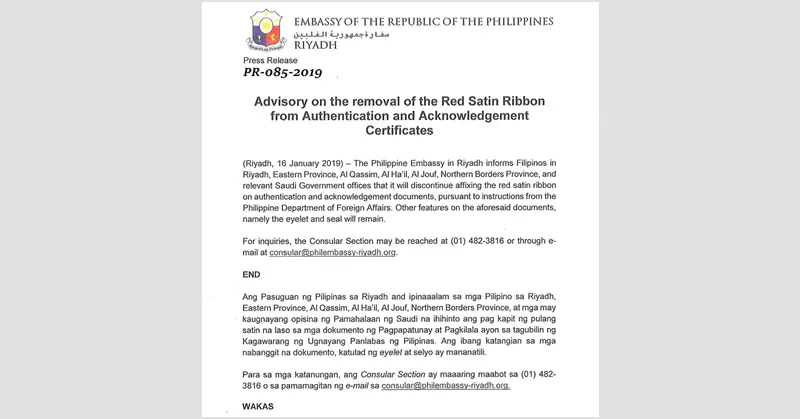
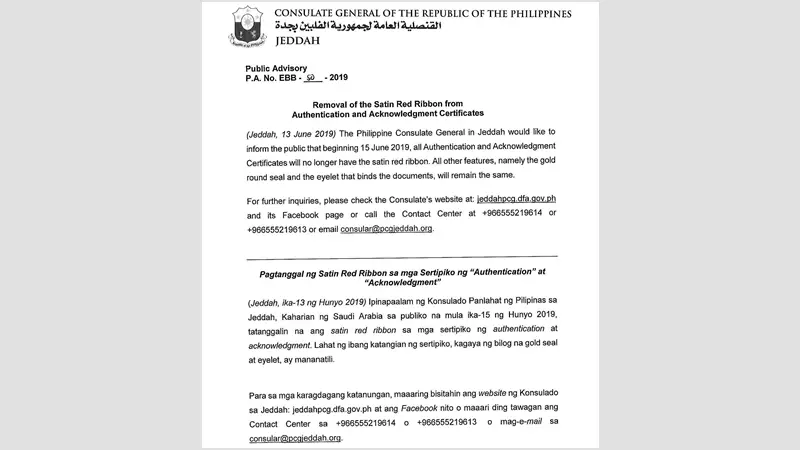
How does the new process work? If you are planning to go to another Apostille-contracting country, you just need to get your documents “Apostilled” in the Philippines. After that, they do not need to be authenticated or legalized by the Embassy of the country you are going to.
Likewise, a person coming from another country that is part of the Apostille Convention simply needs to get his or her document “Apostilled.” Then, it can be used in the Philippines without having to be authenticated by the Philippine Embassy or Consulate General.
Hence, compared through the previous method of authentication, the Apostille makes the process more convenient and cost-saving, not to mention a lot faster.
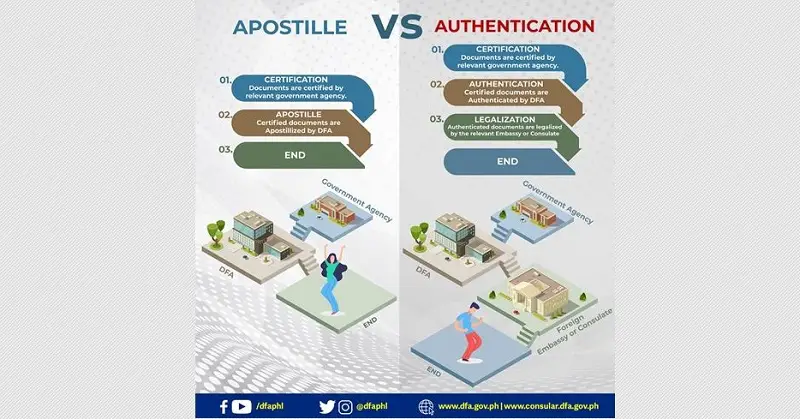
On Countries that aren’t Part of the Apostille Convention
For countries that aren’t part of the Apostille Convention, the previous process of authentication still applies. A Philippine document must be authenticated or legalized by the Embassy of the country of destination, while a foreign document must be authenticated by the Philippine Embassy or Consulate General before it can be used in the Philippines.
If you are heading to a country that isn’t part of the Apostille Convention, you need to submit your document to the Embassy of that country for authentication. In any case, you should inquire with the Embassy of the country you’re going to, and with the intended recipient of your document.
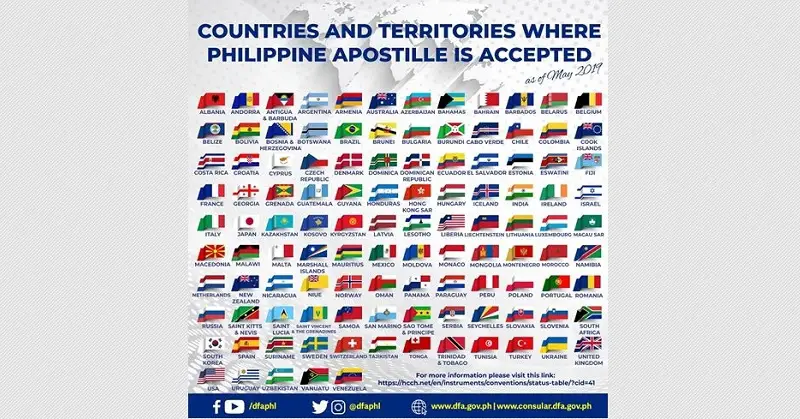
ALSO READ: How to Renew your Philippine Passport in Saudi Arabia
For inquiries about the new authentication process, you may contact the Philippine Embassy in Riyadh by calling (01) 482-3816 or sending an e-mail to consular@philembassy-riyadh.org. You may also contact the Philippine Consulate General in Jeddah by dialing +966555219614 or sending a message to consular@pcgjeddah.org.
DISCLAIMER: The details presented above are for information-sharing purposes only. To know more about these latest advisories, please visit the official websites of the Philippine Embassy in Riyadh, the Philippine Consulate General in Jeddah, and the Department of Foreign Affairs (DFA).
